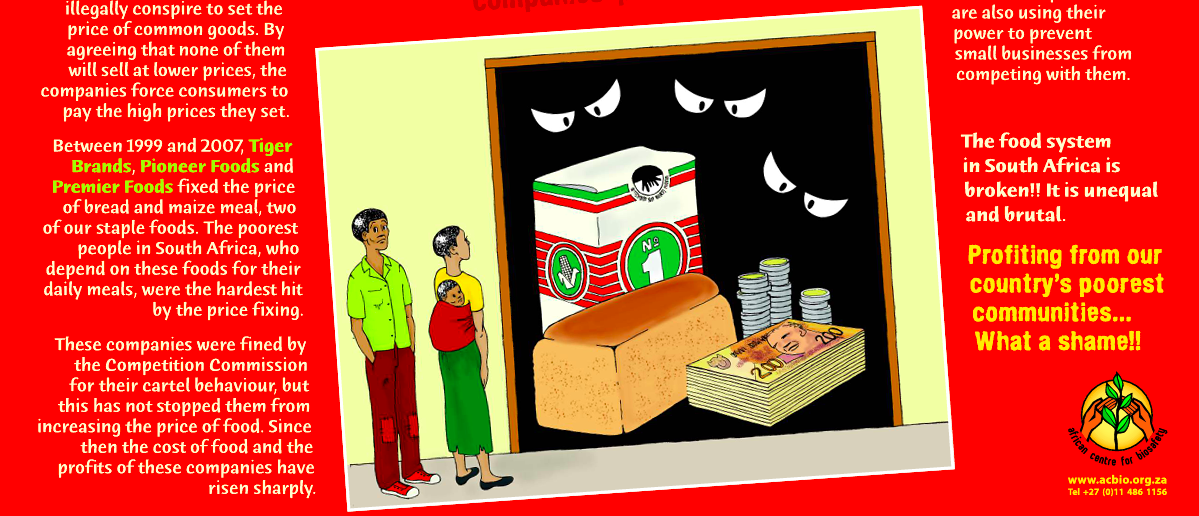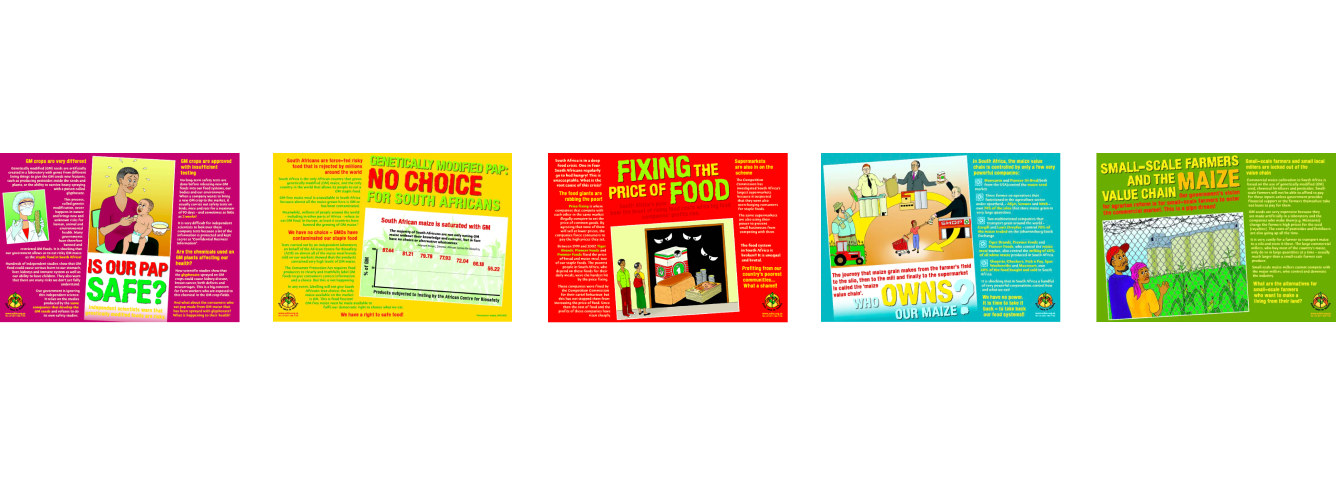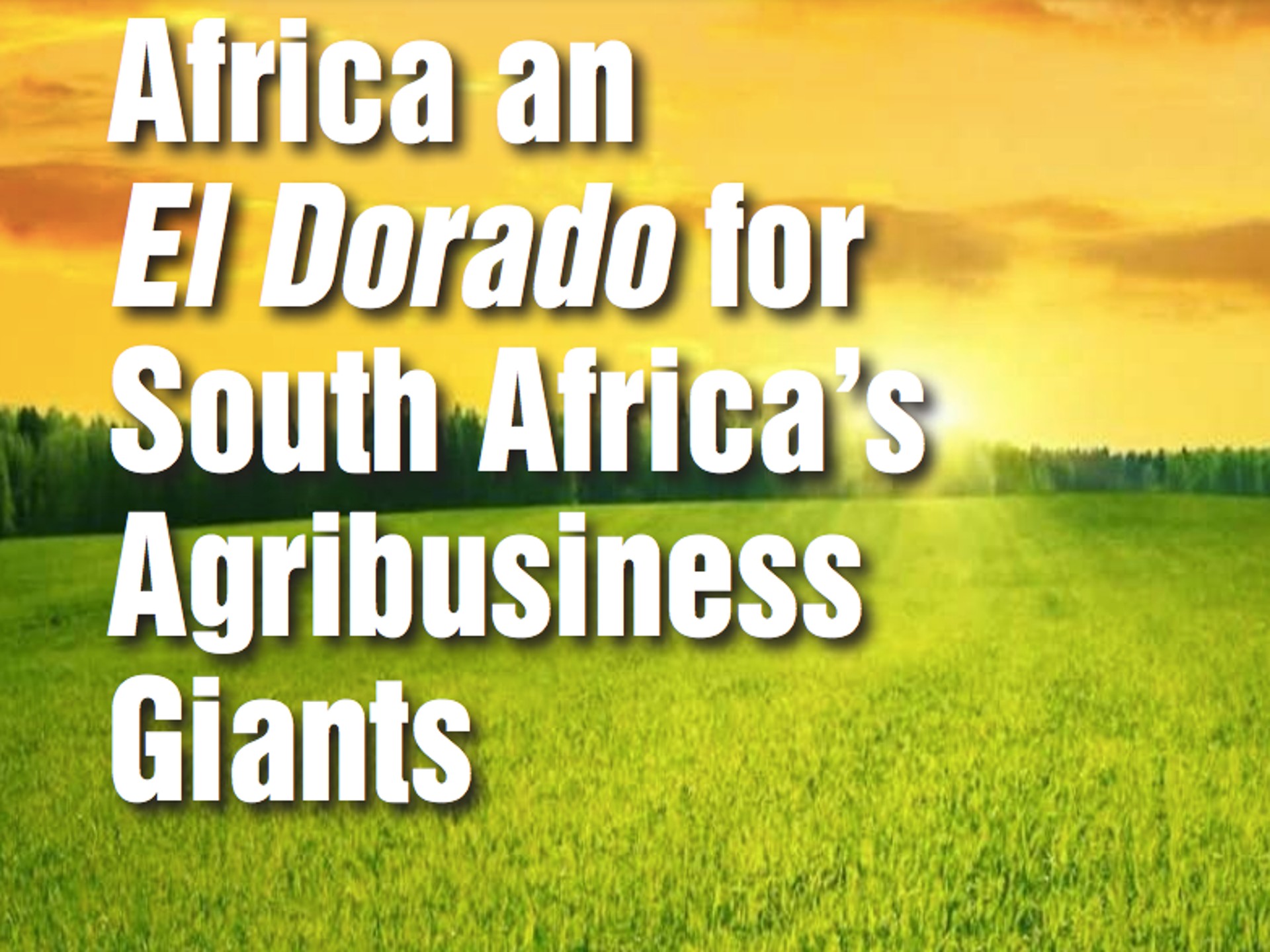Latest Resources

3 December 2014
Who owns our food systems: Fixing the price of food
Between 1999 and 2007, Tiger Brands, Pioneer Foods and Premier Foods fixed the price of bread and maize meal, two of our staple foods. The poorest people in South Africa, who depend on these foods for their daily meals, were the hardest hit by the price fixing. Download this factsheet: English | Afrikaans | Sotho […]

3 December 2014
Who owns our food systems: Is our pap safe?
Many governments have banned and restricted GM foods. It is shocking that our government allows us to eat risky GM maize as the staple food in South Africa! Download this factsheet: English | Afrikaans | Sotho | Zulu To read the rest of the fact sheets in this series, click here.

3 December 2014
Who owns our food systems factsheet series
Download our Who owns our food systems factsheet series in English, Afrikaans, Sotho, and Zulu.

25 November 2014
Who owns our food system?
It is a matter of urgency that we break up these cartels that have South African consumers, especially the poorest of the poor, in a vice grip through control of our two staple foods ? maize and bread. South Africans eat about 28 billion loaves of bread and, on average, about 100kg of maize and […]

8 October 2014
Acquisition of Africa’s SeedCo by Monsanto, Groupe Limagrain: Neo-colonial occupation of Af...
The Alliance for Food Sovereignty in Africa (AFSA) is deeply concerned about the recent acquisitions by multi-national seed companies of large parts of SeedCo, one of Africa’s largest home-grown seed companies. Attracting foreign investment from the world?s largest seed companies, most of who got to their current dominant positions by devouring national seed companies and […]

6 October 2014
Resources transferred from small-scale farmers to multinational agribusinesses in Malawi’s ...
The African Centre for Biosafety (ACB) has today released its research report based on field work conducted in Malawi, titled “Running to stand still: Small-scale farmers and the Green Revolution in Malawi.” The research, conducted by the ACB in collaboration with the National Smallholder Farmers’ Association of Malawi (NASFAM), Kusamala Institute of Agriculture and Ecology […]

2 September 2014
Africa an El Dorado for South Africa’s Agribusiness Giants
South African agribusinesses are aggressively expanding into Africa in search of profits from a relatively untapped consumer market with rising income levels and to escape the country’s negative economic conditions. This paper traces this expansion and outlines the implications for Africa’s market structure, food security and food sovereignty movements, as well as exploring the potential […]

18 November 2013
Giving With One Hand and Taking With Two: A Critique of AGRA’s African Agriculture Status R...
The African Centre for Biosafety (ACB) has released a comprehensive critique of a report published by the African Alliance for a Green Revolution in Africa (AGRA). The analysis of AGRA’s African Agriculture Status Report 2013 reveals that AGRA’s vision is premised on Public-Private Partnerships in which African governments will shoulder the cost and burden of […]

12 July 2013
Do African Farmers Need CAADP?
The Peoples’ Dialogue and the Trust for Community Outreach and Education (TCOE) have written a short booklet on the Comprehensive Africa Agriculture Development Programme (CAADP), the African Union’s framework for agricultural development for Africa, titled “Do African Farmers Need CAADP?” The objective is to summarise and simplify information on CAADP so as to, collectively, create […]

15 May 2013
STATEMENT BY CIVIL SOCIETY IN AFRICA
MODERNISING AFRICAN AGRICULTURE: WHO BENEFITS? African agriculture is in need of support and investment. Many initiatives are flowing from the North, including the G8’s “New Alliance for Food Security and Nutrition in Africa” and the Alliance for a Green Revolution in Africa (AGRA). These initiatives are framed in terms of the African Union’s Comprehensive African […]
